
About This Quiz
The phrase "larger-than-life" doesn't begin to describe Elton John. Born Reginald Dwight in Middlesex, England, he grew up hooked on early rock 'n' roll. Finding inspiration in the music of performers like Elvis Presley and Little Richard, the self-described "fat boy from nowhere," found both purpose and passion in music. As a young man, he came alive behind the piano with a natural gift for composition and a singing voice that could melt hearts with its sensitivity or melt faces with its ferocity.
Although many singer-songwriters of his generation were content to play the part of understated, "serious" musicians, sedately strumming their guitars, John was a rocker at heart with a wicked sense of humor and a glam-infused style to match. With his rhinestone-encrusted spectacles and outlandish outfits, he could give even KISS a run for their money.
The ensuing decades have found a less-outlandish Elton John not only continuing to make hits but also becoming an activist championing the fight against AIDS. With the recent publication of his memoirs and the release of the biopic "Rocketman," Elton continues to fascinate, captivate and entertain us.
In this quiz, we'll look at the man and his music - the songs that have become part of the soundtrack of our lives. If you're an Elton John fan, this one's for you!
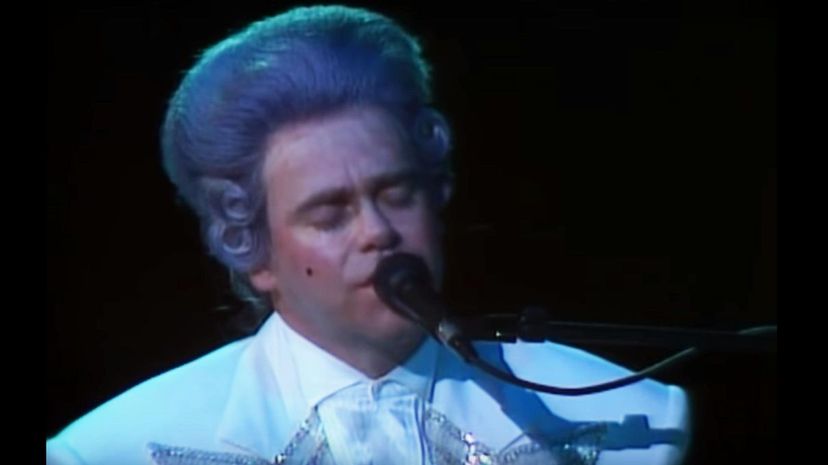
"Candle in the Wind," a tribute to the troubled life of actress Marilyn Monroe, first appeared on the 1973 album "Goodbye Yellow Brick Road." It was released as a single in the United Kingdom where it charted at number 11. A stripped-down live version recorded in Australia was a hit for Elton in 1986.
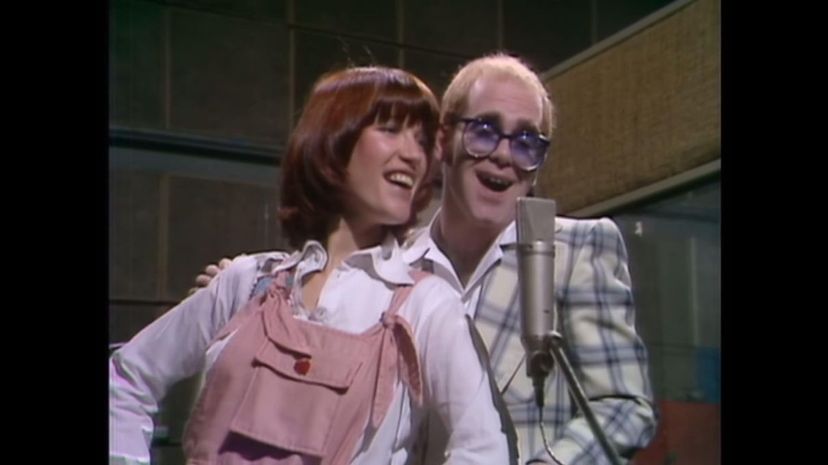
Elton John and Bernie Taupin originally intended to have Dusty Springfield sing on "Don't Go Breaking My Heart," but withdrew their offer when Springfield fell ill. The songwriting duo recruited soulful Brit songstress Kiki Dee, resulting in Elton John's first number-one hit in the United Kingdom.
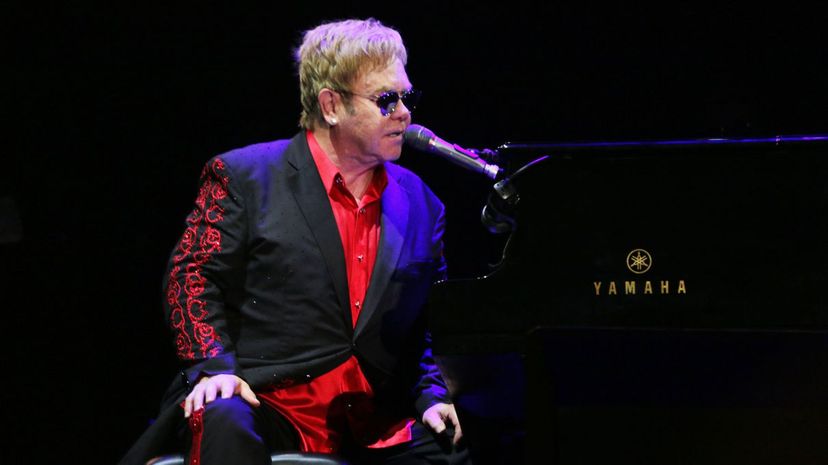
With its sneering vocals, wild guitar and piano-driven riffs, "Saturday Night's Alright for Fighting" is Elton John's hardest-rocking song. A fist-pumping ode to switchblades, motorbikes and barroom brawls, this single from "Goodbye Yellow Brick Road" approaches punk rock in intensity.
Advertisement
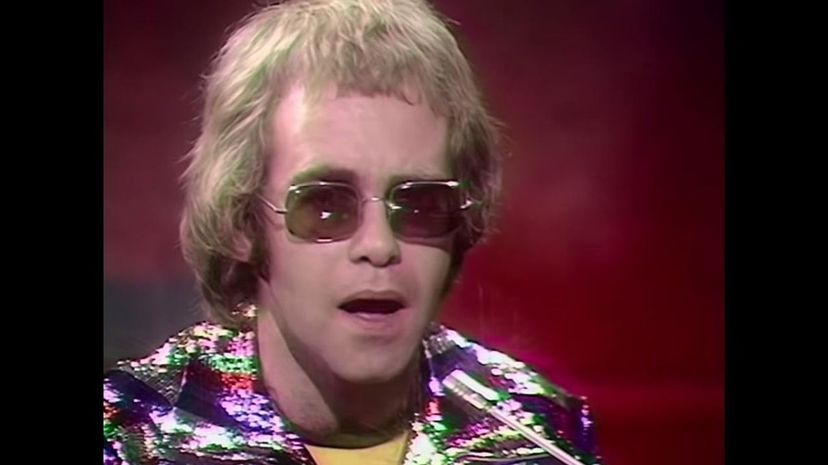
Although it failed to crack the top ten in 1972, "Tiny Dancer," from Elton John's fourth studio album, "Madman Across the Water," has become one of the musician's best-loved songs. Featured in the 2000 film "Almost Famous," the song was finally certified gold in 2005 and triple platinum in 2018.
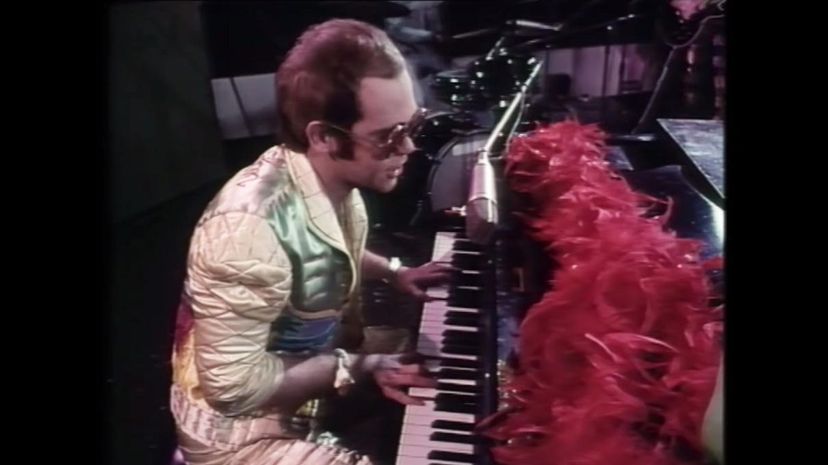
Elton John put an indelible mark on the holiday season in 1973 with his infectiously upbeat Christmas tune "Step Into Christmas." Reaching number one on the "Billboard" Christmas singles chart the year it was released, the song remains a beloved seasonal staple.
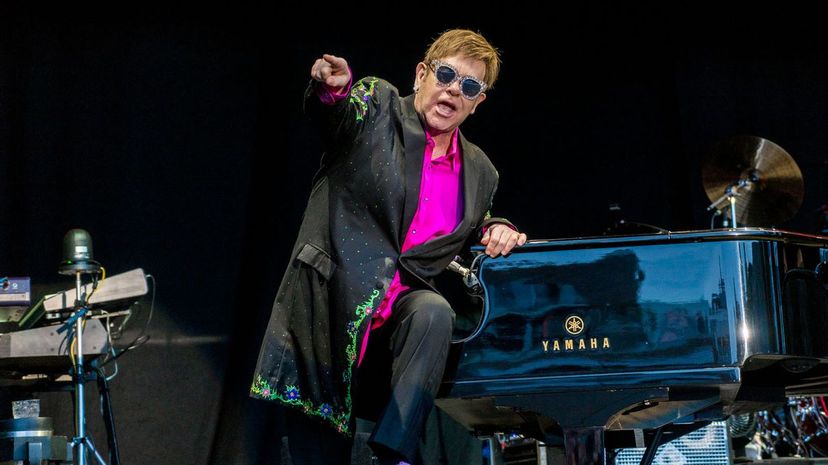
"Goodbye Yellow Brick Road," from the 1973 double album of the same name, is one of Elton John's most beautiful ballads. The lyrics, written by John's longtime collaborator Bernie Taupin, use imagery from "The Wizard of Oz" as a metaphor for longing for a simpler life.
Advertisement
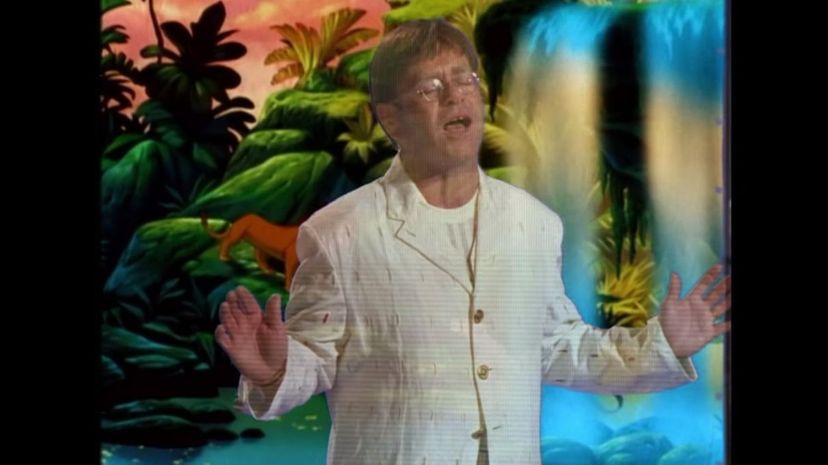
1995 was a banner year for Walt Disney's animated feature, "The Lion King." Three songs from its soundtrack by Elton John and Tim Rice were nominated for Best Original Song: "Circle of Life," "Hakuna Matata" and "Can You Feel the Love Tonight," which ultimately took the Oscar.
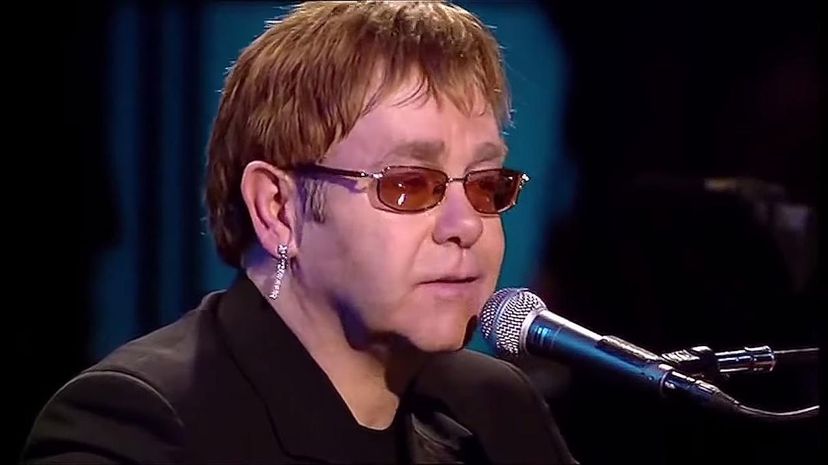
After Princess Diana died in a car crash, Elton John and Bernie Taupin rewrote "Candle in the Wind" as a tribute to the fallen royal. The ensuing single "Candle in the Wind '97," beginning with the lyrics "Goodbye England's Rose," is the second-biggest-selling single in history.

"Rocketman" features 21 of Elton John's hits performed by Taron Egerton who portrays him in the film. However, the "reel" Elton meets the real Elton for "(I'm Gonna) Love Me Again." Written and composed by Bernie Taupin and Elton John, the song is a triumphant capper to an inspiring story.
Advertisement
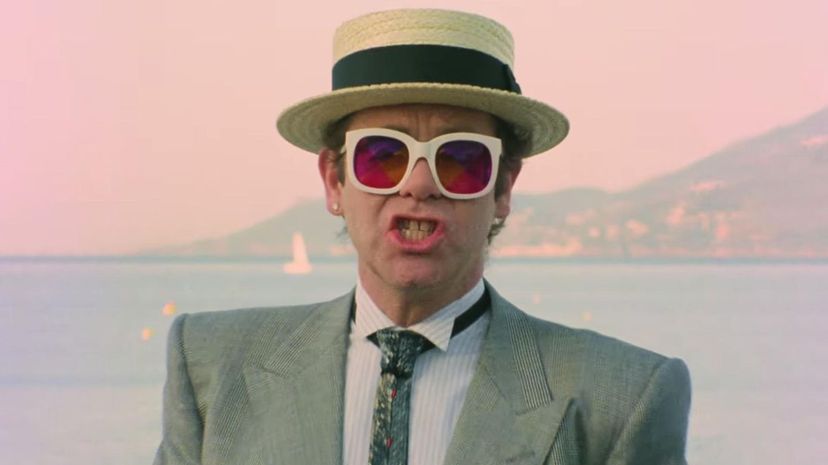
1983 saw Elton John returning to form after a series of underperforming albums. John's album "Too Low For Zero," with its single, "I'm Still Standing," was a victory lap for a rock survivor. With a colorful video shot on the French Riviera, the song proved Elton was ready for the '80s.
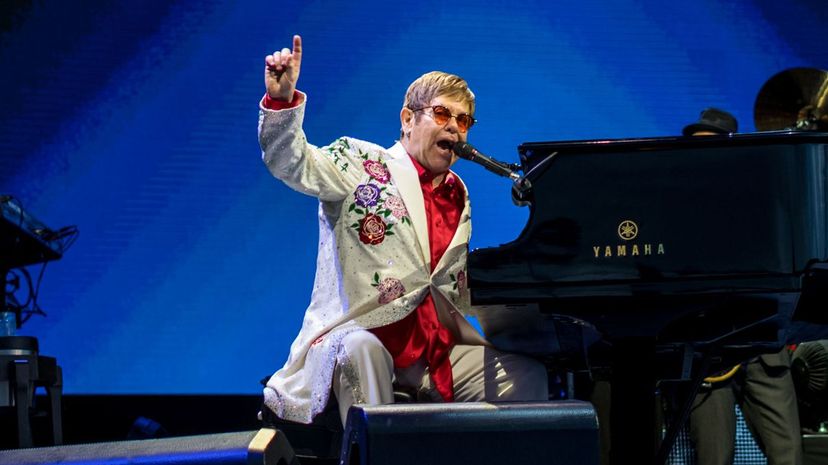
"Crocodile Rock" is an enduring, upbeat hit from Elton John's 1973 album, "Don't Shoot Me I'm Only the Piano Player." In the song, the first-person protagonist is reminiscing about the early days of rock 'n' roll and his girlfriend Suzie, who "left us for some foreign guy."
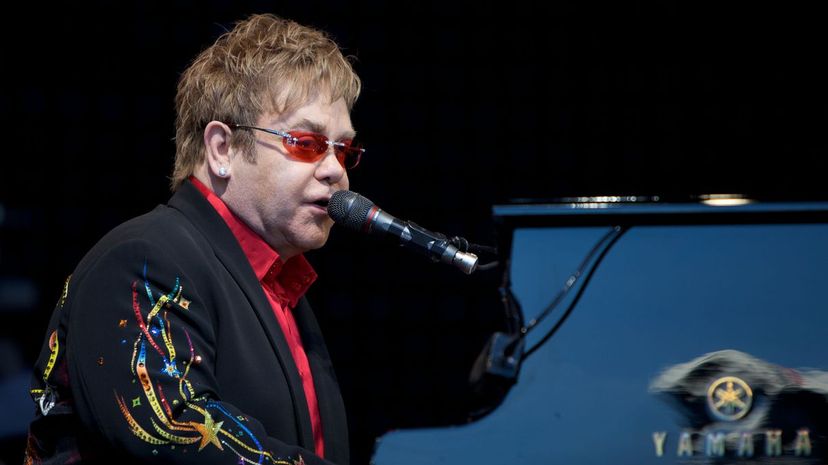
"Levon," from the "Madman Across the Water" album, is a multigenerational slice of life. Touching on themes of disaffection between fathers and sons, Bernie Taupin's freeform lyrics allow for multiple interpretations. But, who is Alvin Tostig? Only Bernie Taupin knows.
Advertisement
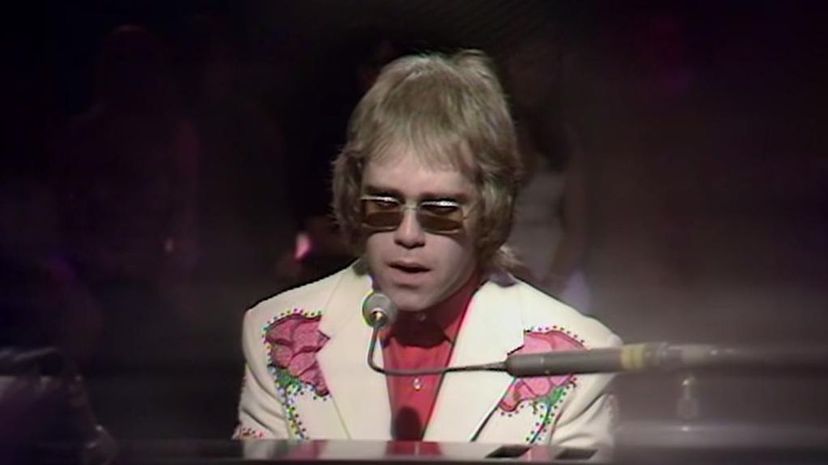
Elton John's self-titled second album, his first release in the United States, produced his first hit establishing him as a worldwide phenomenon. Released as the B-side of "Take Me to the Pilot," "Your Song" caught on with radio disc jockeys and listeners who made it John's first top-ten hit.
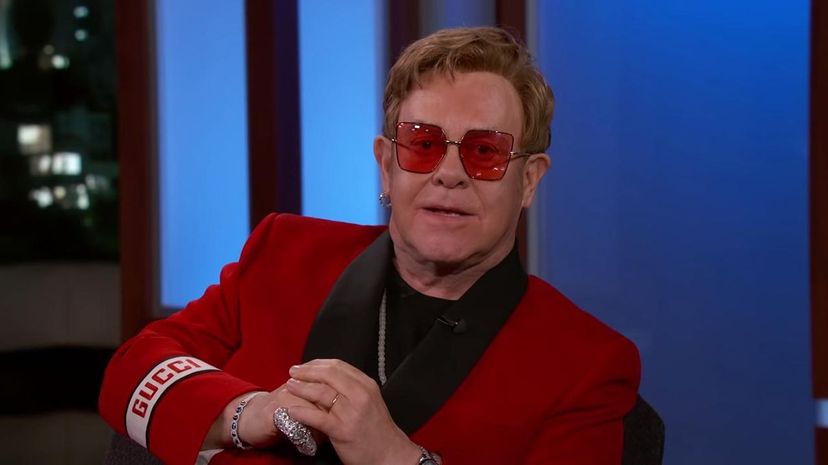
2019 saw the publication of Elton John's long-awaited autobiography "Me." A candid account of his life in his own words, "Me" recounts the musician's often tumultuous life, struggles with addiction and journey to recovery.
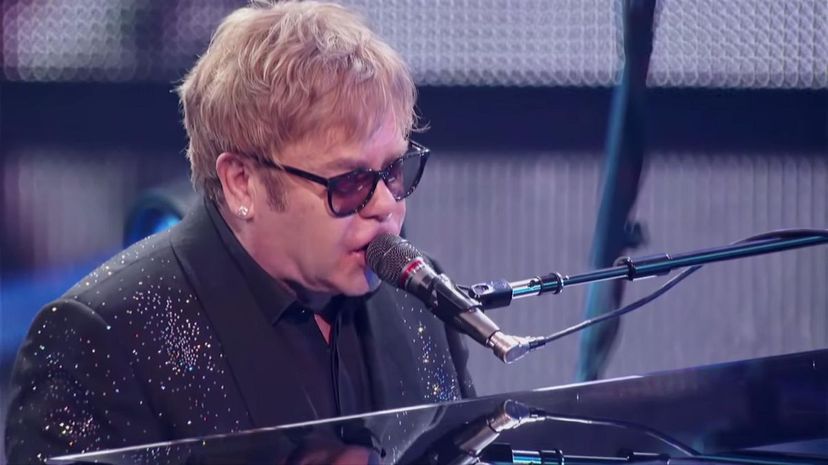
"Philadelphia Freedom" was a hit for Elton John in 1975. Although Taupin's lyrics don't directly reference tennis, it was written as a salute to Elton's friend, tennis icon Billie Jean King and her team, the Philadelphia Freedoms. For decades, John and King have collaborated on philanthropic causes.
Advertisement
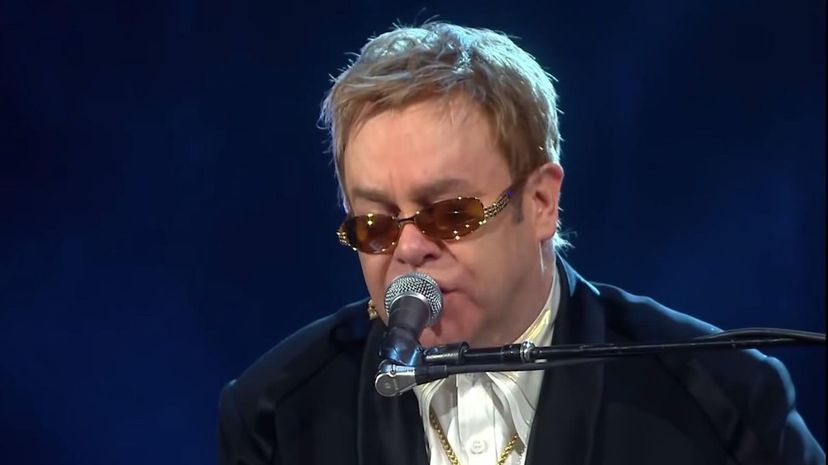
"Empty Garden (Hey Hey Johnny)" is Elton John's tribute to his good friend and occasional partner in music John Lennon. The former Beatle was murdered outside his New York City residence on December 8, 1980.
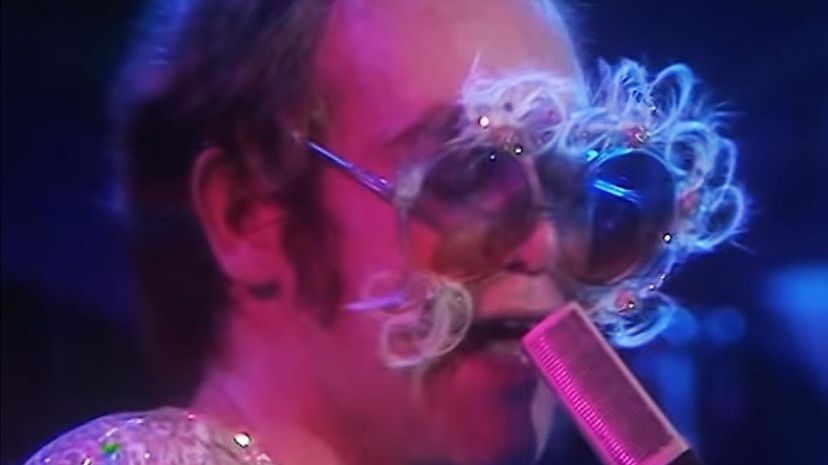
Elton John teamed with John Lennon in 1974 for a cover of the psychedelic Beatles hit "Lucy in the Sky with Diamonds." Lennon, credited as Dr. Winston O'Boogie, provides backing vocals and guitars on the single.
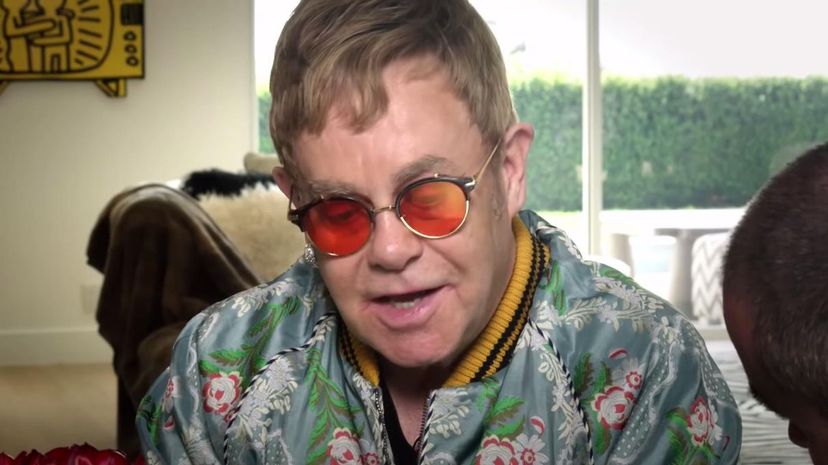
The electrifying performer we know and love as Elton John began life as Reginald Dwight. Taking the names of two of his bandmates, Elton Dean and John Baldry, Dwight became Elton John. His chosen middle name is Hercules, after the horse from the sitcom "Steptoe and Son" rather than the Greek myth.
Advertisement
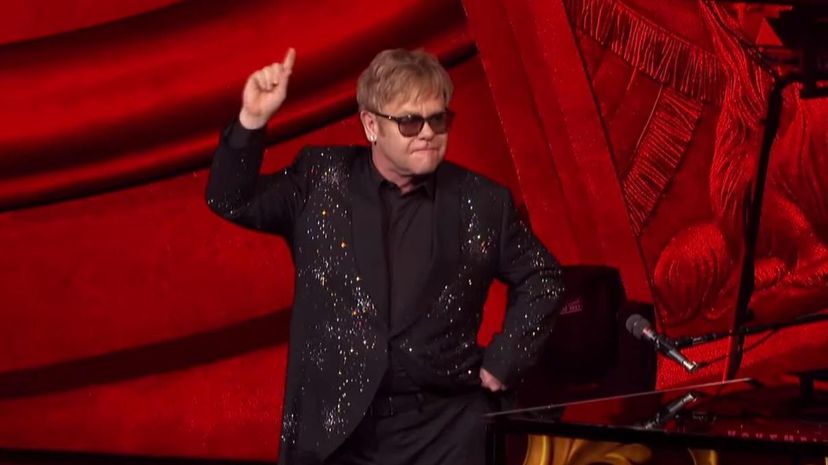
Elton John's 1974 album "Caribou" kicks off with one of his hardest-rocking signature numbers, "The Bitch is Back." A wry crack at John's lifestyle and the absurdity of celebrity, the song was suggested by Bernie Taupin's wife, who would often comment "the bitch is back" if Elton was in a foul mood.
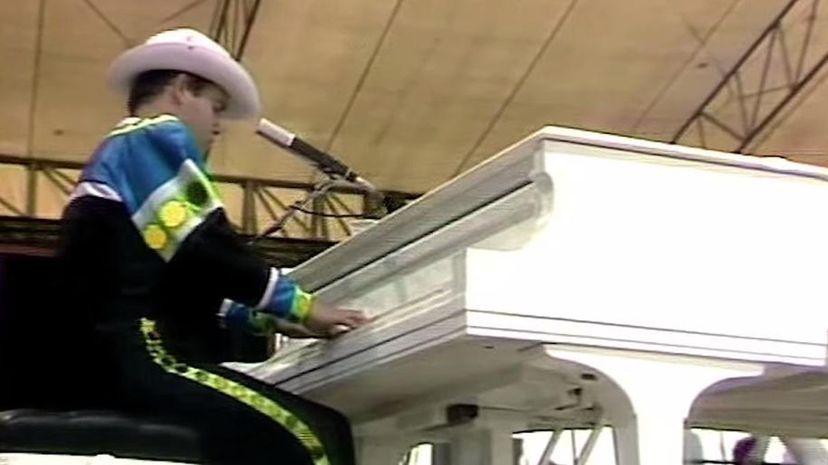
For much of his career, Elton John was as known for his wild stage attire as for his musical talent. However, by 1980 he had trended to more sedate outfits. Needless to say, he took a Central Park crowd of 400,000 fans by surprise when he hit the stage dressed in a Bob Mackie-designed Donald Duck suit.
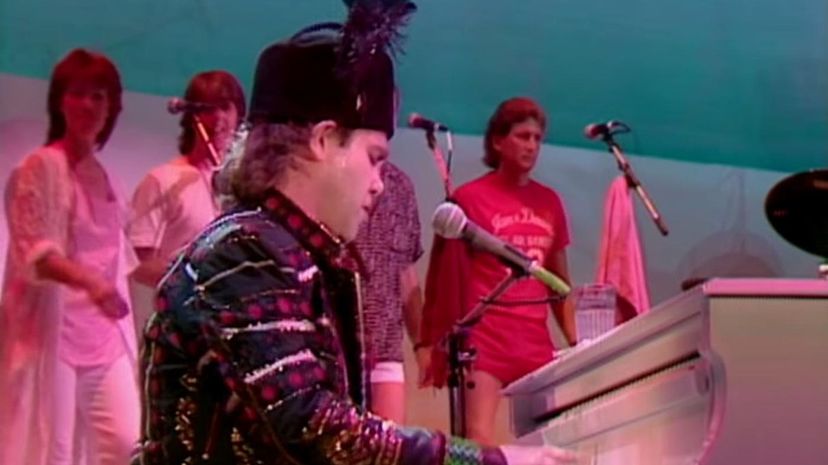
With her electric boots and mohair suit, we all know that Bennie from Elton John's "Bennie and the Jets" is really keen. Capturing the glitz and madness of the '70s music scene, the song, about a fictional band and its outlandish singer, evokes the imagery of glam rockers like T-Rex and David Bowie.
Advertisement
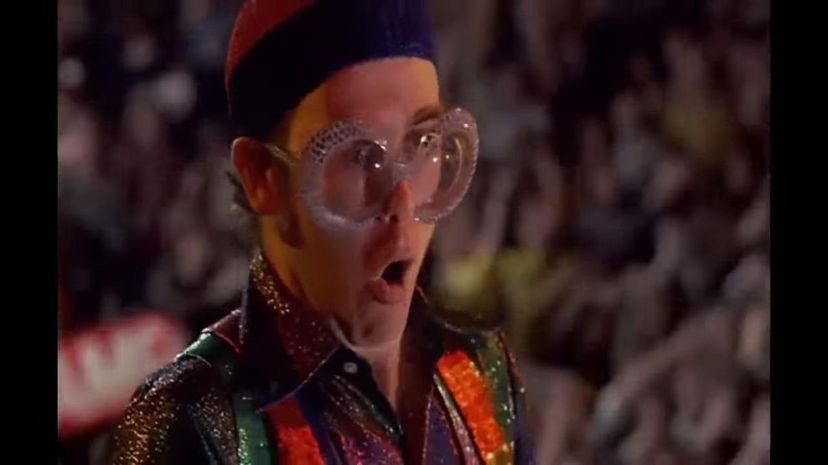
In the 1975 film adaptation of The Who's rock opera "Tommy," Elton John appears as the Local Lad, a pinball champion defeated by the eponymous Tommy Walker (Roger Daltrey). John gives a rousing performance of "Pinball Wizard" in enormous platform boots.
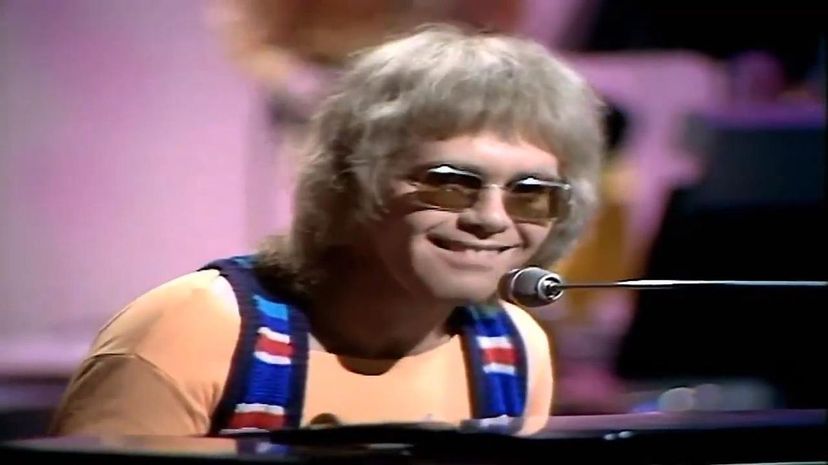
Seemingly nonsensical, Elton John's raucous "Take Me to the Pilot" is a fine example of lyricist Bernie Taupin having fun with words. Taupin himself has stated he's not sure what the song is about. Nevertheless, "Take Me to the Pilot" is a rocking staple of Elton's live shows.
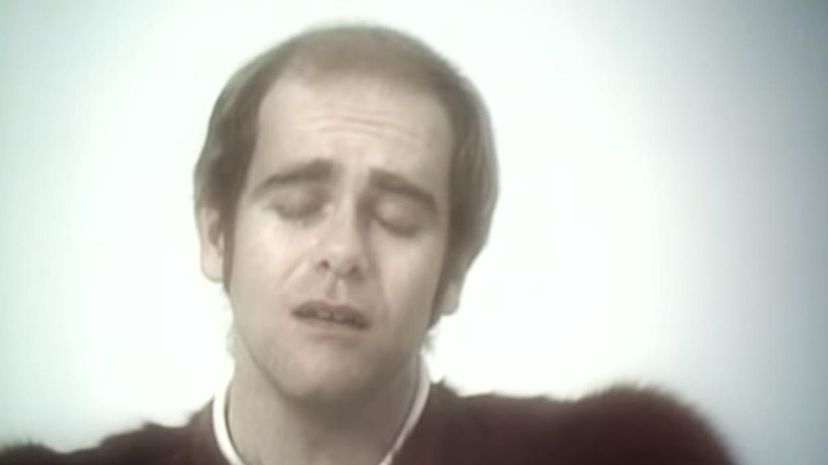
"Sorry Seems to Be the Hardest Word" is a top-20 single from Elton John's 1976 album "Blue Moves." A mournful, tearjerker of a ballad, it has been frequently covered by a variety of artists, with styles as diverse as Frank Sinatra and Mary J. Blige.
Advertisement
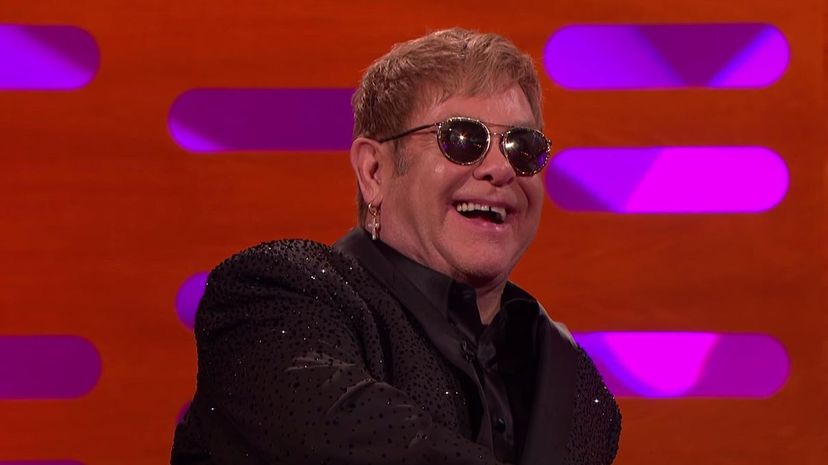
"Billy Elliot: The Musical" is a stage adaptation of the popular 2000 film directed by Stephen Daldry. Elton John composed the music for the play, with the film's screenwriter, Lee Hall, providing the book and lyrics.
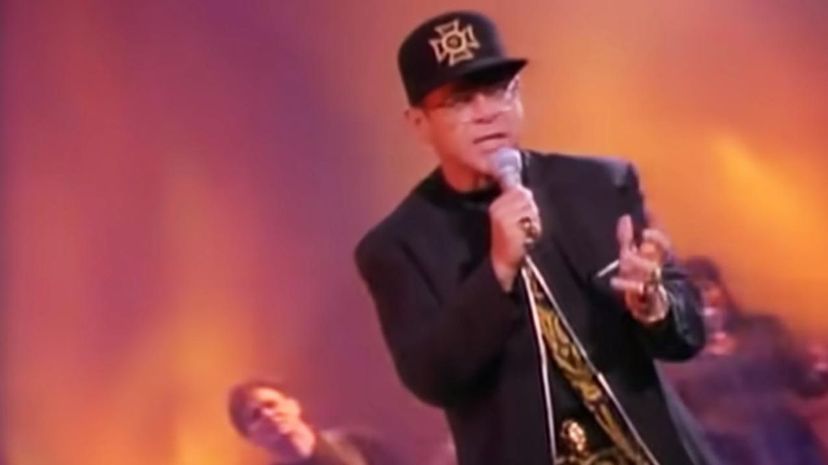
"Don't Let the Sun Go Down on Me" first appeared on Elton John's 1974 album "Caribou," going to number two on the "Billboard" Hot 100. In 1991, John teamed with former Wham! frontman George Michael for a live version, recorded at London's Wembley Arena on the final date of Michael's "Cover to Cover" tour.
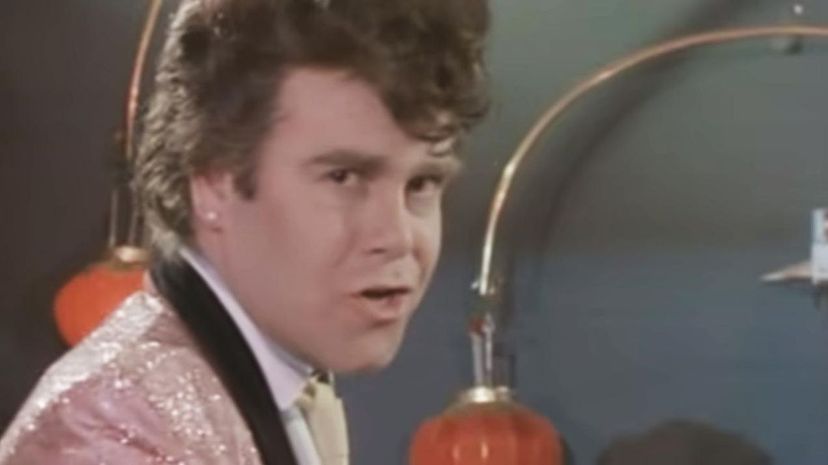
Elton John's melancholy hit "I Guess That's Why They Call It the Blues" was the second single from Elton John's 1983 comeback album, "Too Low For Zero." Another hit for the songwriting duo of Taupin and John, the song featured music legend Stevie Wonder on harmonica.
Advertisement
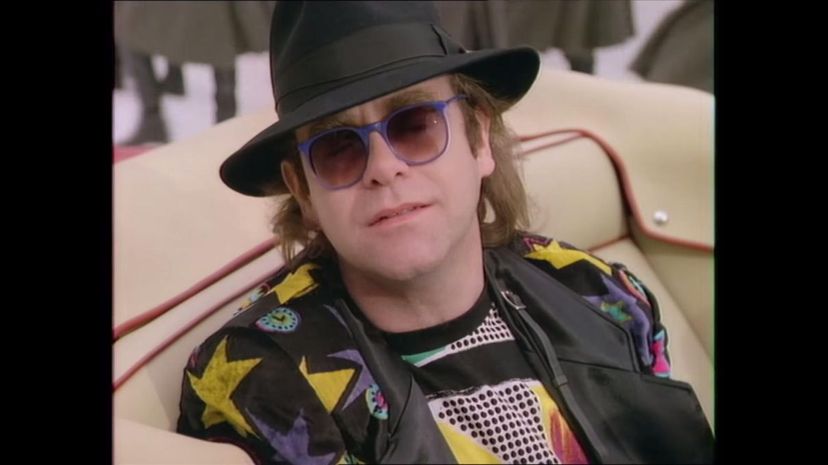
In the song "Nikita," a hit from the album "Ice on Fire," Elton sings of an infatuation with a Soviet border guard, lamenting that they can never fall in love. Director Ken Russell shot a popular video for "Nikita," featuring John and actress Anya Major in a dramatic interpretation of the song.
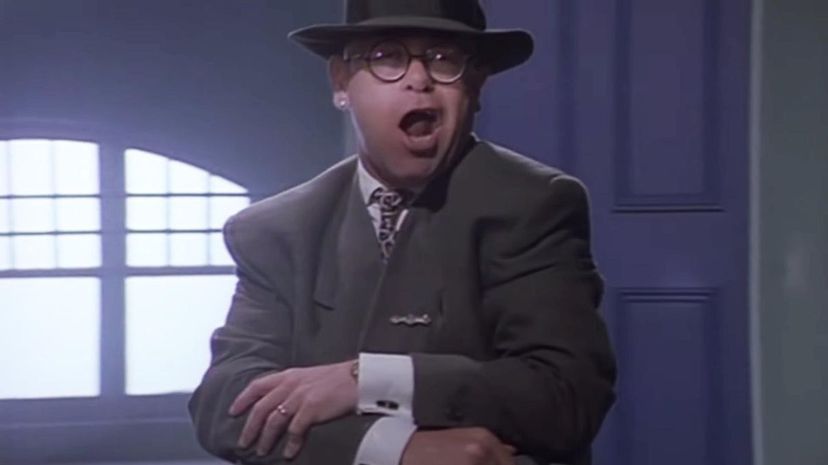
"I Don't Wanna Go on With You Like That," from 1988's "Reg Strikes Back," was Elton John's highest-charting hit of the decade. An upbeat song of defiance, "I Don't Wanna" tackles themes of infidelity and romantic exclusivity with typical John and Taupin aplomb.
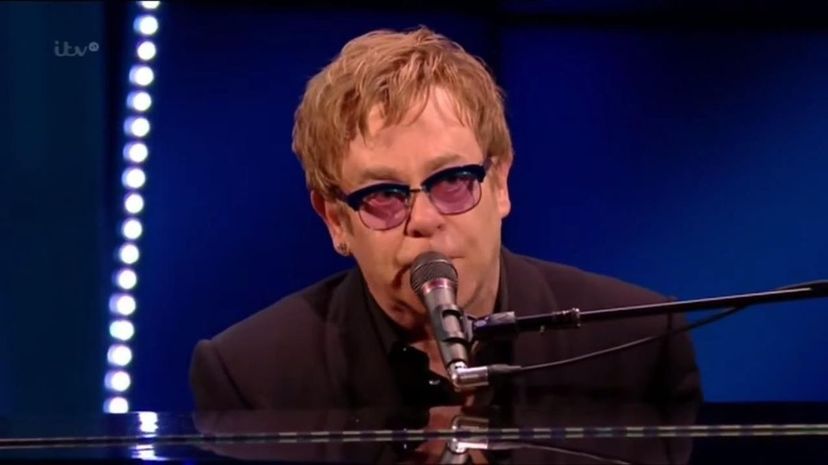
"Sacrifice," from the album "Sleeping With the Past," is perhaps the best John/Taupin composition of the '80s. Although it failed to crack the U.K. top 40 in 1989, English DJs reignited interest in the ballad, sparking a 1990 re-release. The song went to number one, a first for John as a solo act.
Advertisement
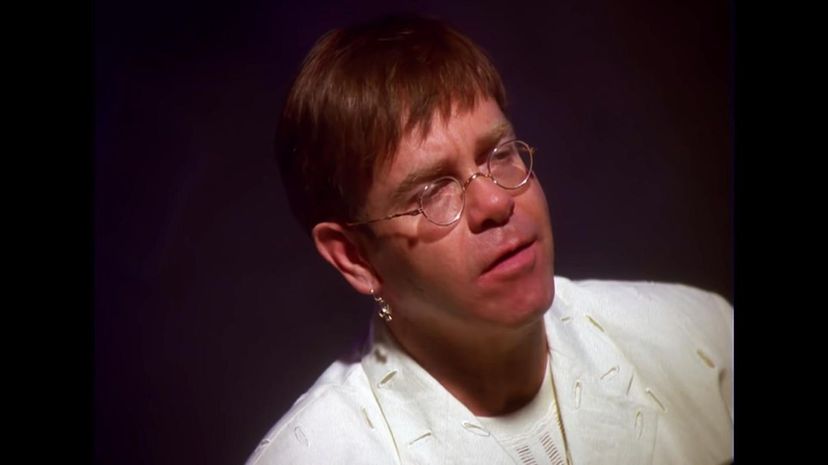
Legendary British bluesman Eric Clapton lends both his formidable guitar skills and voice to the song "Runaway Train" from Elton John's 1992 album "The One." This pairing of English musical giants also appears on the soundtrack to Richard Donner's "Lethal Weapon 3."
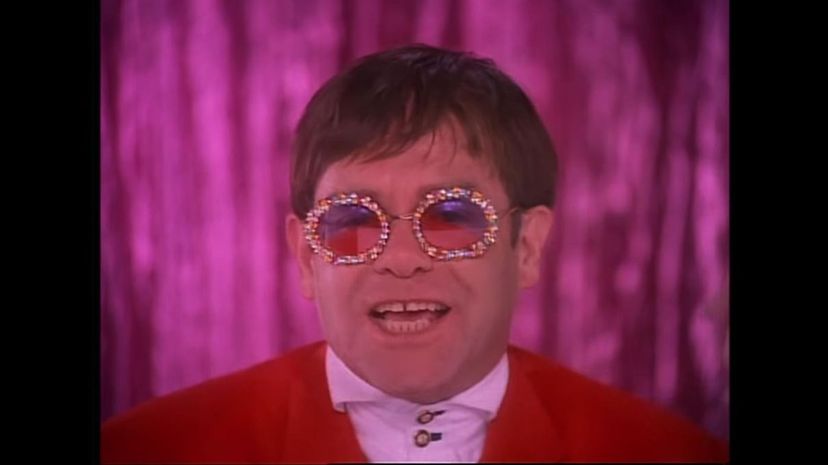
In 1994, Elton John scored a dance hit when he revisited his 1976 single "Don't Go Breaking My Heart" with drag performer, singer and TV personality RuPaul. Elton has also performed the hit he originally sang with Kiki Dee with Miss Piggy, Minnie Mouse and The Spice Girls.
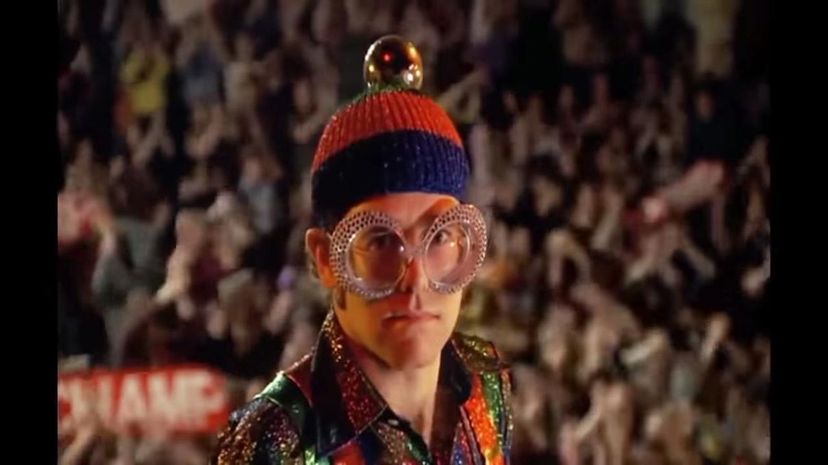
Coinciding with the release of 1976's "Captain Fantastic and the Brown Dirt Cowboy," game manufacturer Bally released an official Elton John "Captain Fantastic" pinball table. Instead of the album art, the table featured Elton in his "Pinball Wizard" outfit from "Tommy."
Advertisement
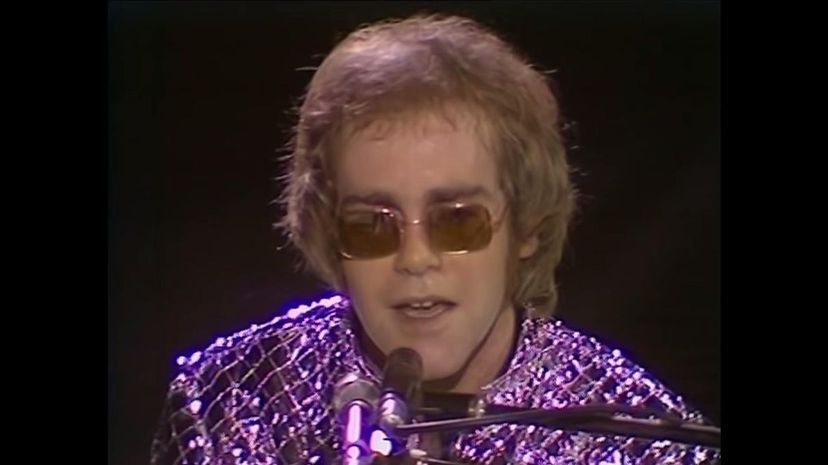
Rocker Jon Bon Jovi had a modest hit with his 1991 rendition of "Levon." The cover of Elton John's 1971 song was Bon Jovi's contribution to the tribute album "Two Rooms: Celebrating the Songs of Elton John and Bernie Taupin." Bon Jovi's earnest take on "Levon" peaked at number 27 in January 1992.
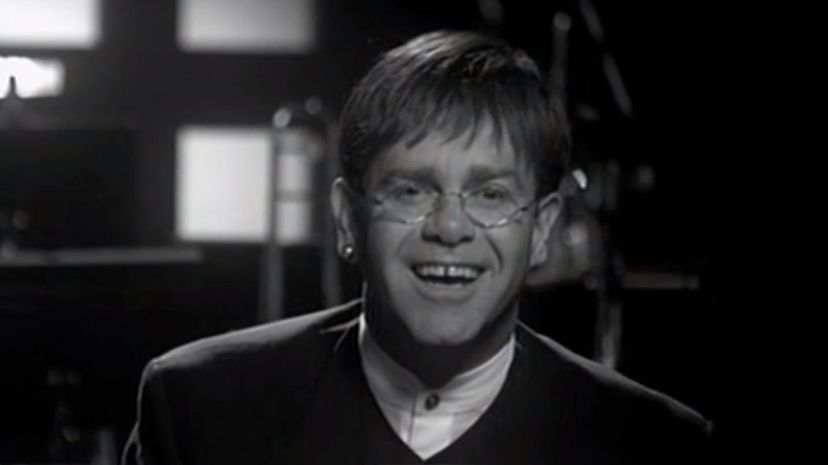
In a clip from the 1978 Saturn Awards that has become a cult sensation, William Shatner, best known as "Star Trek's" Captain James T. Kirk, performs a bizarre-but-poignant spoken-word rendition of "Rocket Man." The performance is introduced by none other than songwriter Bernie Taupin.